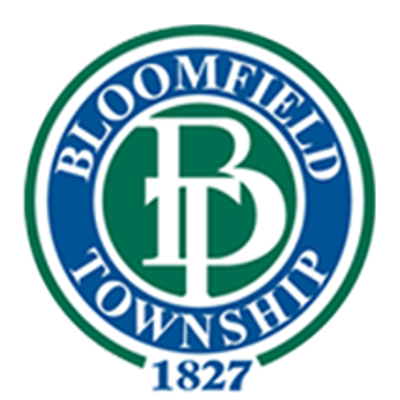Frequently Asked Questions (FAQ)
The SADP is a program designed to help qualifying homeowners by allowing them to defer payment of their annual road or water/sewer special assessments.
No, the SADP does not waive or forgive special assessments. It allows qualified homeowners to delay payment until they are in a better financial position or until certain conditions trigger repayment.
No, your property tax amount remains unchanged. If you qualify for deferment, only the special assessment portion will be deferred.
You can defer your special assessment for up to 10 years. This timeframe may be extended if you still qualify for “financial hardship” as defined below. Note that if you sell your house, transfer it to someone other than your spouse, or refinance your mortgage, you will need to repay all amounts deferred.
The Township will place a lien on your property to ensure repayment of the deferred amounts, however the lien will be subordinate to your existing mortgage and should not impact it. You will need to repay the Township if you refinance your mortgage.
To qualify, a homeowner must demonstrate “financial hardship” in paying their special assessment, which is defined as follows:
- The annual special assessment exceeds a specific percentage of total Household Gross Income (see table below).
- Total Household Gross Income must be $150,000 or less.
- Total Household Assets must be $35,000 or less for single-member households or $50,000 or less for multi-member households.
- The combined mortgage debt and other liens on the property cannot exceed its value (as measured by two times the property’s current assessed value.)
|
Household Size |
Percentage of Gross Income |
|
1 |
3.00% |
|
2 |
2.50% |
|
3 |
2.00% |
|
4 |
1.75% |
|
5 or more |
1.50% |
Gross Income is defined as the amount listed on Line 9 of IRS Form 1040 ("Total Income"). This includes all forms of income including social security and pensions, investment income, alimony and support from family. Child support received under a court order is not included. If a married couple files their tax returns separately, both incomes are combined.
Assets include:
- Cash in checking and savings accounts
- Certificates of deposit (CDs)
- Investment accounts (stocks, bonds, mutual funds, cryptocurrency, etc.)
- Real estate other than the primary residence
- Vehicles beyond the primary vehicle(s)
- Recreational vehicles and equipment
No, your retirement accounts are not included.
Yes, only owner-occupied houses are eligible for this program.
If you qualify for the Property Tax Hardship Exemption, you automatically qualify for deferment of your special assessment. You will still need to file an application, but do not need to provide any additional documentation.
Possibly. The Township Treasurer has the authority to waive one requirement (such as income, asset limits, or documentation) if extenuating circumstances can be demonstrated.
Applications must be submitted to the Township Assessor by June 30 and include:
- A current year tax return
- A personal financial statement (a form is provided on the website)
- 3 months’ bank statements for all of your accounts
Additional documentation may be required.
Applicants will be notified no later than September 15 of the Township's decision.
Yes. If you are unsatisfied with the decision, you can appeal to a committee consisting of the Treasurer, Assessor, Supervisor, Clerk, and Finance Director. A majority vote is required to overturn the initial decision. Appeals must be submitted by September 30.
yes. Homeowners must reapply for each year's assessment.
First-time participants sign a Deferment Agreement and Lien, which is recorded with the county. If you have previously deferred payments, you will sign an acknowledgment of the increase to your total deferment.
Repayment is required upon whichever occurs first:
- You sell your home.
- You refinance your mortgage.
- You transfer your home (except to a spouse).
- The funds have been deferred for 10 years.
Yes. The Township Treasurer may extend the deferment for one additional year in certain cases of continued hardship.
Yes. The deferred amount accrues simple (non-compounding) interest at a rate of 3% per year.
Once full repayment is made, the Township will record a Discharge of Lien with the county, removing the lien from your property.
You can repay your deferred assessment, plus accrued interest, at any time without penalty.
For more information or assistance with the application, please contact the Bloomfield Township Assessor’s Office at (248) 433-7710 or email assessor@bloomfieldtwpmi.gov.
